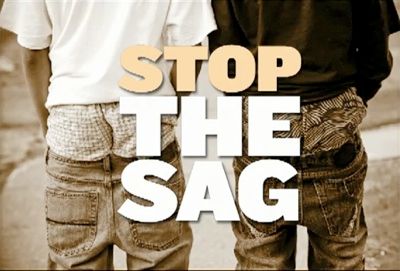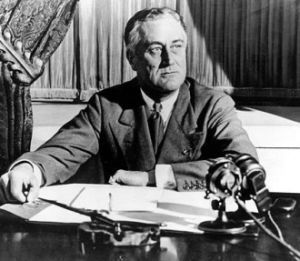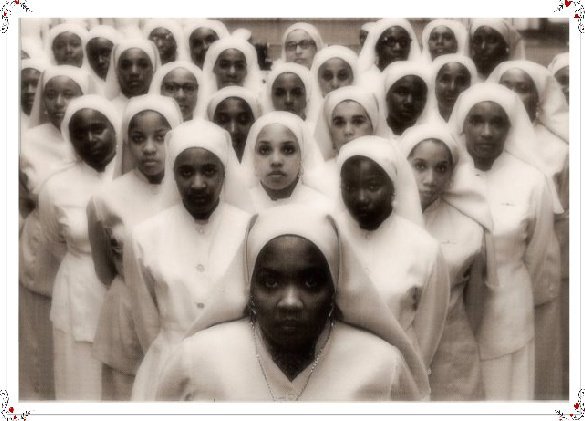

"Two hundred and twenty-seven years ago the first of our injured race were brought to the shores of America. They came not with glad spirits to select their homes in the New World. They came not with their own consent, to find unmolested enjoyment of the blessings of this fruitful soil .... They came with broken hearts, from their beloved native land, and were doomed to unrequited toil and deep degradation."
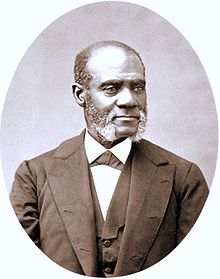
Henry Highland Garnet (1815–1882) was an African American abolitionist and orator.
Shem Hotep ("I go in peace").
 The picture above is funny, and sad at the sametime.
The picture above is funny, and sad at the sametime.

Read a Book. Lies my Teacher told me. By James W. Loewen
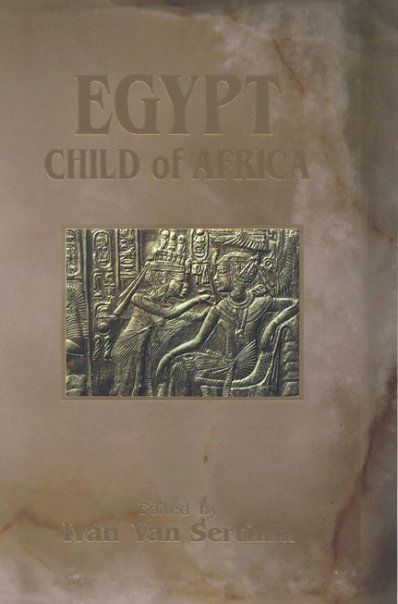
Read a Book. Egypt Child of Africa. By Ivan Van Sertima
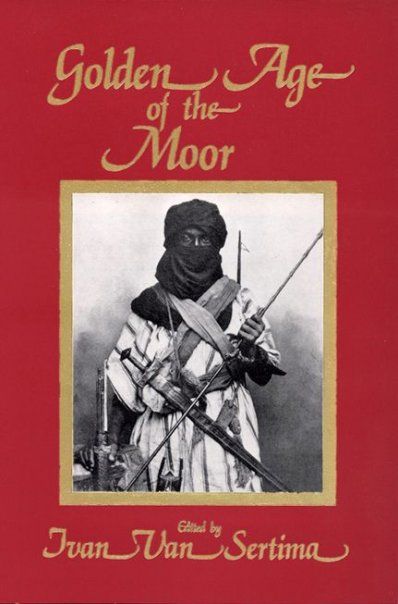
Read a Book. The Golden Age of the Moor. By Ivan Van Sertima.
"Beware the beast Man, for he is the Devil's pawn. Alone among God's primates, he kills for sport or lust or greed. Yea, he will murder his brother to possess his brother's land. Let him not breed in great numbers, for he will make a desert of his home and yours. Shun him; drive him back into his jungle lair, for he is the harbinger of death." Dr. Cornelius
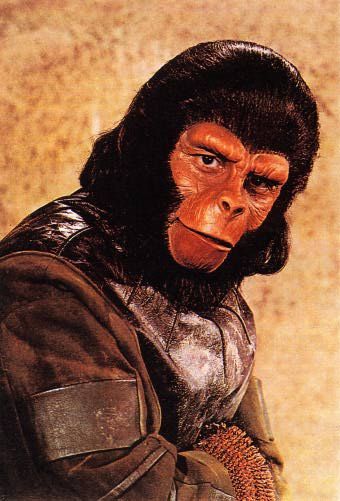
Dr. Cornelius is a chimpanzee archaeologist and historian, appearing in the original novel of Planet of the Apes.
"Where there is fire, there is smoke. And in that smoke, from this day forward, my people will crouch, and conspire, and plot, and plan for the inevitable day of Man's downfall. The day when he finally and self-destructively turns his weapons against his own kind. The day of the writing in the sky, when your cities lie buried under radioactive rubble!
When the sea is a dead sea, and the land is a wasteland out of which I will lead my people from their captivity! And we will build our own cities, in which there will be no place for humans except to serve our ends! And we shall found our own armies, our own religion, our own dynasty!
And that day is upon you NOW!" Caesar
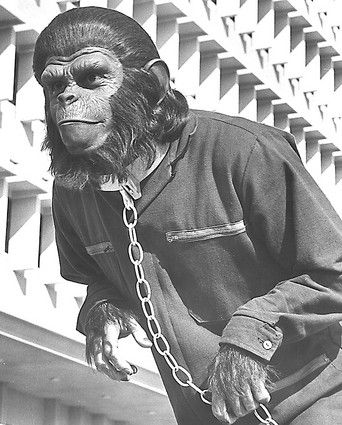
Caesar is the son of Dr. Cornelius, appearing in the original novel of Conquest of the Planet of the Apes.
In Conquest of the Planet of the Apes, primates are used as servants and slaves for human beings. Eventually, Caesar, the chimpanzee protagonist of the movie leads a primate revolution against human beings. Caesar tells a black assistant to the oppressive governor “You, of all people should understand that to be free, we need power,” making the slavery allegory all the more clear.
Link to Conquest of the Planet of the Apes.
http://www.youtube.com/watch?v=rZ7FH4vO8gY&feature=related
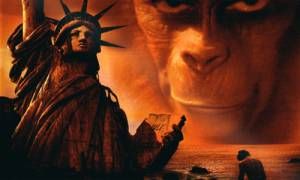
The best of the four sequels to Planet of the Apes -- and a great science fiction film even as a stand-alone venture -- director J. Lee Thompsons' film suggests -- in unblinking, brutal terms -- that in the case of subjugation, oppression, slavery and injustice, violent revolution is the only solution to rectify the problem. In the words of the film, despotic masters won't be kind until they are "forced" to be kind. To force kindness, your people have to be free. To have freedom...you must possess power.
This notion of violent revolution as panacea to matters of social inequality didn't just arise from the ether. Like all great works of art, Conquest of the Planet of the Apes, released in 1972, strongly reflects the time period during which it was produced. And from 1965 through the early 1970s, the United States suffered a number of debilitating, disturbing and violent race riots in many of its most populous urban areas. Angry African-Americans took up arms, looted merchants, and destroyed property in an attempt to express their grievances with the social injustice they witnessed and endured.
The Watts Riots occurred in Los Angeles in the year 1965, and 4,000 rioters were arrested by the police. 34 rioters were killed, and over 1,000 were injured. A political commission convened after the riot judged that the outbreak of violence had been caused by the following conditions: racial inequality in Los Angeles, a high jobless rate, bad schools, heavy-handed police tactics, and pervasive job and housing discrimination.
The LAPD chief at the time of the lawlessness didn't exactly help calm things down either. He referred to the rioters as "monkeys in the zoo," according to Social Problems, 1968, pages 322-341. As silly as that may sound, that very description -- of rioters as monkeys -- is literally translated in Conquest of the Planet of the Apes.
The Watts Riots did not represent an isolated incident, either. There was also the Washington D.C. Riot of 1968, the Baltimore Riot of the same year, and the Chicago Riot too. And -- perhaps most dramatically -- there was the so-called "Detroit Rebellion" of 1967 which lasted for five days (during a hot July) and saw 7,200 arrests, 40 million dollars worth of property damage, and over 2,000 buildings burned to the ground. The root causes of this violent spree were -- again after the fact -- deemed the same as those that had been observed in Watts. Unemployment by blacks doubled that of whites (15.9% to 8%) in Detroit; the community had little access to adequate medical facilities; there was distinct "spatial segregation" in the city; and 134,000 jobs had been lost over the previous decade-and-a-half.
In toto, half-a-million African-Americans were involved in the various race riots of the late 1960s. To contextualize that sum total, this number is equivalent to the number of American soldiers serving in the War in Vietnam. (Planet of the Apes as American Myth, Eric Greene, 1998, page 79). This huge figure alone should put truth to the lie that the riots were but isolated incidents, or somehow just involved career criminals. Clearly, this was a social movement, not a crime spree.
From this turbulent era of violence, riot and protest was formulated Conquest of the Planet of the Apes, a sci-fi film which projects an ape slave uprising in technological North America in the far-flung future year of 1991. As also suggested by author Greene, the film's text is actually "key for re-reading the Watts Riots as a justifiable reaction to intolerable oppression, rather than just an outbreak of lawless abandon." (Planet of the Apes as American Myth, Eric Greene, 1998, page 16). In Dehn's script, the rebelling apes are even specifically referred to as "rioters."
Shot entirely on the futuristic-looking campus of the University of California at Irvine, Conquest of the Planet of the Apes is set in "the future," in an America that has transformed itself into a rigid, fascist state. Nightly curfews are enforced rigorously. Heavily-armed police officers patrol the streets. American citizens are subjected to torture by the State (via a device called an authenticator) without any respect to due process of law. Announcements to citizens by the "Watch Commander" play regularly in the background on the heaivily-guarded city streets...the ubiquitous voice of Big Brother. Labor demonstrations and gatherings are ruthlessly put down by military police.
Because all dogs and cats have died (killed by a space plague in 1985), apes have replaced these beloved animals. First as beloved pets but now as slaves.
These slave apes are "conditioned" to obey human masters, and are punished via "conditioning" when they fail in their tasks or simply don't perform fast enough.
A populist human movement resists the enslavement of apes...because the simians are (involuntarily) taking away their jobs. GO HUMAN, NOT APE, reads one placard. SLAVES ARE SCABS reads another. UNFAIR TO WAITERS screams one more We saw signs and isceral protests like this in District 9 (2009) this summer too: a nativist fear that ethnic "newcomers" are here to steal jobs, depress wages and tax our already overburdened system.
In Conquest of the Planet of the Ape's dynamite, extended opening sequence -- shot entirely in the shadow of 1970s "futurism" architecture -- the viewer is introduced to the rules and locales of this cold, fascist world. Apes are trained en mass in the public square, running a gauntlet of tasks at the bidding of armed, uniformed masters. They are constantly instructed and disciplined in cruel terms. "Go!" "No!" "Do!" It is the ape's job to serve, but not to question. The slaves are also forced to breed, but not allowed to maintain families.
In keeping with the overarching metaphor of the race riots in America, Conquest of the Planet of the Apes further contextualizes the apes' 1991 slavery in terms of the historical African-American experience in our country.
We see, for instance, a racially-charged image of prejudice: a slave ape obediently shining his master's shoes (a shoeshine boy!). We also see apes transported from their native habitats (Borneo) against their will to serve in the United States, via ships. Again, this is an echo of Ghana's "Gate of No Return," and the involuntary journey of many slaves from Africa to our shores...as prisoners.
Conquest of the Planet of the Apes even depicts slave apes in neck shackles, and auctioned off in a public square to the highest human bidder. If you've ever toured the Old Slave Mart in Charleston, SC, you'll recall that such auctions are not fiction; and that Conquest of the Planet of the Apes does not exaggerate the plight or treatment of slaves in our history.
Conquest of the Planet of the Ape's screenplay draws specific parallels to the African-American experience, not merely with these resonant images, but also in the presentation of an African-American character named MacDonald (Hari Rhodes) who serves as the aide to Governor Breck.
McDonald is sympathetic to the ape cause and the ape leader, Caesar (Roddy McDowall) notes that McDonald "above all people," should understand him. "Above all people" is an explicit verbal reminder of MacDonald's racial identity and status as the descendant of a black slave.
Later, one of the oppressive aides in Governor Breck's dictatorial regime notes that the compassionate McDonald must be an "ape lover." Not to be excessive, but this is a variation of the ugly epithet "nigger lover." Another aide replies caustically (about McDonald), "Don't it figure?" Again, these are veiled, bigoted references to McDonald's skin color and his heritage as a black man. Governor Breck even terms MacDonald a "bleeding heart," equating him with the position of civil-rights-fighting "liberal" in this battle.
The villain of the piece, Governor Breck (Don Murray) finally informs ape leader Caesar why he hates apes, and his detailed explanation is one built on the backbone of racial hatred; a belief that the "other" (black man or ape...) is inferior to him. Breck calls Caesar "the savage who must be shackled in chains...You poison our guts. When we hate you, we're hating the dark side of ourselves."
Our question becomes: is Breck referring to the "dark side" of human nature (which certainly doesn't seem to fit the kindly, innocent apes; especially those like Lisa...), or is the governor actually making another coded statement about skin color. "The dark side" might actually be interpreted to mean dark-skinned.
What remains rather audacious about Conquest of the Planet of the Apes is that most audiences -- white, black, what-have-you -- register the subjugated apes (and Caesar) as the unambiguous heroes of the piece; as the wronged party -- even though it is the entire human race that stands to lose in any violent revolution.
Perhaps such reflexive identification with the underdog, with the exploited, speaks to the inherent goodness and fairness of the American people. Intellectually, we immediately reject racism and oppression, and so therefore easily sympathize with the put-upon, subjugated apes. Yet, ironically, that's not at all what happened regarding the real life riots of the 1960s. Nixon's "silent majority" found it easier to disregard the rioters as lawbreakers and opportunists than acknowledge them as fighters against injustice; fighters for equal rights in American cities of consdierable social disparity. Of course, a movie allows us to experience things that we don't see or understand in real life. As viewers, we saw in Conquest torture, degradation, inequality and other moral sins. But how many of us went to Watts to live? Or Detroit?
At 88 minutes, Conquest of the Planet of the Apes is a short, fast and brutal film, but it is also one of the most effective and direct science-fiction movies of the era. Many of the visuals reinforce the pervasive theme of governmental subjugation.
I'm particularly fond of an artful shot that visually "entraps" Caesar and his kindly master, Armando (Ricardo Montalban) within the parted, uniformed legs of an armed soldier. The images tells us how the State surrounds and dominates the characters.
I also appreciate the manner in which the inspirational Caesar wordlessly transmits his message of total resistance (and then rebellion...) to his kindred ape slaves. Caesar simply appears on the scene (sometimes in close-up; sometimes in medium shot), and then there's quick pand and zoom to a slave ape...and then the slave ape very actively rebels; dumping garbage, dropping books, even starting a fire. This brand of cause-and-effect shot is repeated again and again in the latter half of the movie, and it's a perfect visual signifier for the notion that you can't kill a powerful idea. Now, Caesar can't literally be everywhere at once; but his message of freedom and liberty transmits at light speed across the slave population. The visual approach reveals how powerful, and widespread the idea of liberty can be in a population that lacks it.
The final sequence of Conquest of the Planet of the Apes depicts the specifics of the ape uprising. It is a clash between riot police (with shields, guns, and helmets) and armed, screeching, enraged apes. This extended, and very violent sequence diagrams "the slave's right to punish his persecutor." The sequence ends with mankind fallen, and Caesar assuming command, ironically, from the pulpit of the human civic center. Behind him -- in the background of the frame -- skyscrapers burn out of control. Again, given the context of the Detroit Rebellion or the Watts Riots, this image is meaningful. People watching the nightly news during those real-life conflagrations had also witnessed "the night of the fires" as Caesar called it, and wondered: would order be restored? Or was this the dawn of a new order? The order of the oppressed...
20th Century Fox apparently grew concerned that Conquest of the Planet of the Apes was too overtly a political film., and took steps to de-fang the social commentary it offered.
In the original, scripted ending, Caesar announced, basically, that Apes would now rule the world just as cruelly as man had ruled it. But a last minute bit of post-production editing changed the tenor of Caesar's pronouncement. After his anger is released Caesar relents and notes that even the inhuman (the apes...) can prove "humane" in their domination over mankind. It's a quick philosophical turnaround and doesn't entirely work. In fact, your head may spin from the shift. But still, you can understand the compromise. The studio didn't want Conquest of The Planet of the Apes -- in the environment of race riots -- to be interpreted as an incitement to real-life violence.
Still, Conquest of the Planet of the Apes ends on a haunting, unforgettable note. Flames consume the the futuristic city, and the planet of the apes is born. And as the end credits roll, the screeching of the victorious apes continues unabated. No closing music softens this shrill sound. The night of the fires continues into an unknown future...
So, is Conquest of the Planet of the Apes really pro-violence? Or is it simply pro-slave? In an interesting sense, the answer is undeniably affirmative: it is pro-violence. Thomas Jefferson once explained that "experience hath shewn, that even under the best forms (of government) those entrusted with power have, in time, and by slow operations, perverted it into tyranny.”
We see that tyranny clearly depicted here: the America of Conquest of the Planet of the Apes exists for the glorification for the rich and powerful at the expense of liberty and freedom for all. Breck's administration is positively despotic (and he's running for President!) And Thomas Jefferson's prescribed cure for tyranny was not unlike Caesar's in the film; the steadfast belief that "every generation needs a new revolution."
So Conquest of the Planet of the Apes re-interprets the Watts Riots and other race violence of the 1960s as one possible and even legitimate response to entrenched racial inequality in America. Caesar tells Mr. McDonald that the only means left to him and his people (the apes) is, indeed, revolution. "We cannot be free until we have power. How else can we achieve it?"
MacDonald then insists that Caesar's attempt at revolution is doomed to failure. "Perhaps, this time," Caesar replies, indicating that this initial riot will not be the last attempt. This response further contextualizes the race riots in America: they exist not as separate, individual, isolated incidents of rampant lawlessness...but as organized, necessary steps along the pathway from slavery to freedom, to total equality.
I realize it is controversial to equate a science-fiction film about "apes" to the Black experience in American history, yet that's precisely the comparison Conquest of the Planet of the Apes forges, as I hope the images in this post, and my contextual examples, reveal. The result is an incendiary, subversive and endlessly intelligent film; one that asks us to gaze at what Caesar calls a myth: "the ideas that human beings are kind."
Like District 9 (2009), Conquest of The Planet of the Apes judges man by the way he treats those populations he controls or dominates. Namely the slaves, the minorities, the immigrants, or the ethnic "others."
In both films, there's an implied warning to entrenched power (one made much more overt in Conquest of the Planet of the Apes):
The tables can be turned. Or worse, over-turned...


